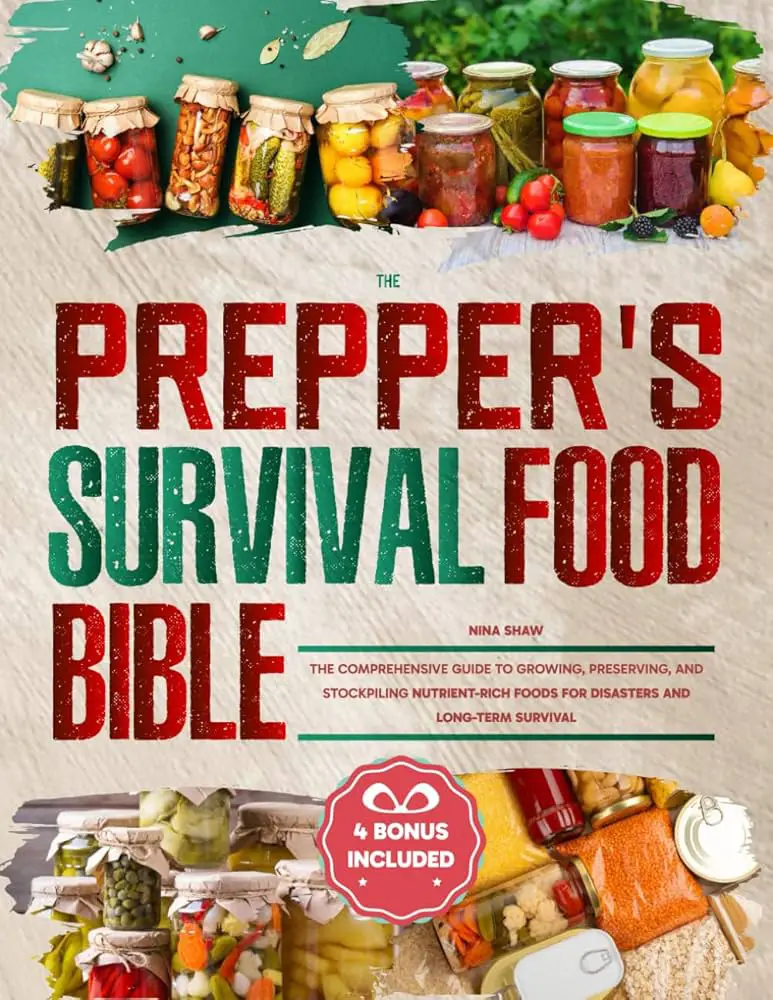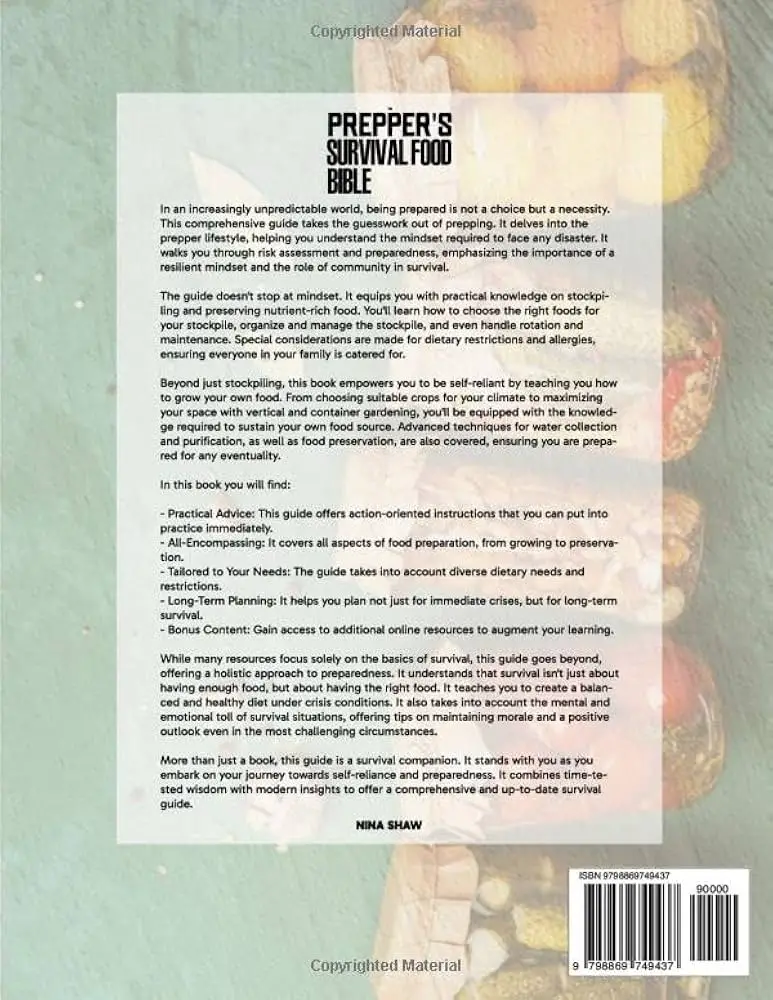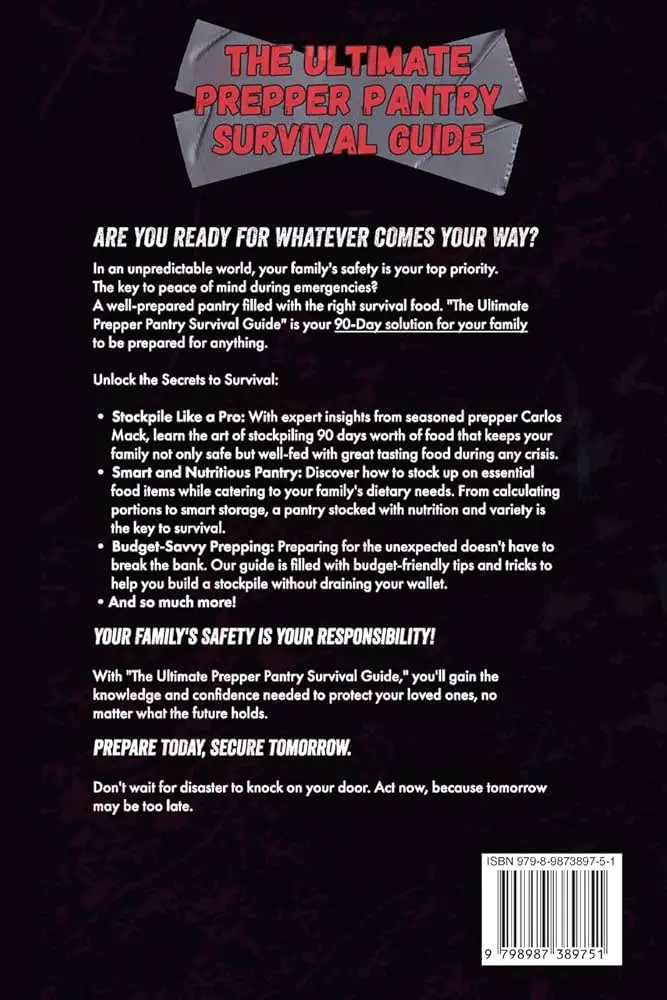The Prepper’s Guide To Using Natural Resources Responsibly
Have you ever wondered how you can prepare for the future while also being mindful of our planet’s natural resources? As a responsible prepper, it is essential to consider not only your immediate needs but also the long-term impact of your actions on the environment. This guide will provide you with tips and strategies on how to use natural resources responsibly in your prepping practices.
Understanding Natural Resources
Before we dive into specific strategies, it is important to have a basic understanding of what natural resources are. Natural resources refer to materials or substances that occur in nature and can be used for economic gain or survival. Examples include water, air, minerals, forests, and wildlife. By being aware of the resources available to you, you can make more informed decisions about how to use them sustainably.
Water Conservation
Water is one of the most critical natural resources for preppers. In a survival situation, access to clean water is essential for hydration, food preparation, and hygiene. It is crucial to conserve water whenever possible. Some simple ways to do this include fixing leaks, taking shorter showers, and collecting rainwater for later use. By using water responsibly, you can ensure that you have an adequate supply in the event of an emergency.

Sustainable Energy Sources
In addition to water, energy is another essential resource for preppers. Using sustainable energy sources such as solar power or wind power can help reduce your environmental impact while ensuring that you have a reliable source of energy during emergencies. Consider installing solar panels or a wind turbine on your property to generate electricity. Not only will this reduce your reliance on fossil fuels, but it will also save you money in the long run.
Responsible Land Use
As a prepper, you may be tempted to clear land or build structures to accommodate your survival needs. However, it is crucial to consider the impact of your actions on the environment. Deforestation and habitat destruction can have long-lasting consequences for wildlife and ecosystems. Whenever possible, try to work with the existing landscape rather than against it. Consider using natural materials for construction and landscaping to minimize your environmental footprint.

Waste Reduction
Waste management is another important aspect of using natural resources responsibly. In a survival situation, you may not have access to traditional waste disposal methods such as garbage collection services. It is essential to minimize waste whenever possible and find creative ways to reuse or recycle materials. Composting organic waste, repurposing containers, and using cloth bags instead of plastic can all help reduce your environmental impact.
Sustainable Food Production
Growing your food is a great way to ensure a sustainable food supply in case of an emergency. However, it is essential to practice responsible agriculture to avoid depleting the soil or harming local ecosystems. Consider using organic gardening methods, rotating crops, and planting native species to promote biodiversity and soil health. By growing your food responsibly, you can have a fresh and nutritious food source without negatively impacting the environment.

Wildlife Conservation
As a prepper, you may come into contact with wildlife while exploring or setting up your survival area. It is crucial to respect and protect the local wildlife to ensure the long-term health of the ecosystem. Avoid disturbing nesting sites, feeding wild animals, or using harmful pesticides that can harm wildlife. By coexisting peacefully with wildlife, you can help maintain a balanced and healthy environment for all species.
Disaster Preparedness
Natural disasters such as hurricanes, earthquakes, and wildfires can have a significant impact on the environment. As a prepper, it is essential to be prepared for these events while also considering their environmental consequences. Create a disaster preparedness plan that includes strategies for minimizing your impact on the environment during and after a disaster. Consider using eco-friendly disaster supplies and clean-up methods to reduce pollution and protect the environment.

Community Engagement
Finally, consider getting involved in your local community to promote sustainability and responsible resource use. Join environmental groups, volunteer for clean-up projects, or participate in community gardens to make a positive impact on the environment. By working together with others, you can create a more sustainable and resilient community that is prepared for emergencies while also protecting natural resources for future generations.
In conclusion, using natural resources responsibly is essential for preppers who want to prepare for the future while also protecting the environment. By understanding the importance of conservation, sustainable energy, responsible land use, waste reduction, sustainable food production, wildlife conservation, disaster preparedness, and community engagement, you can create a comprehensive prepping plan that considers both your immediate needs and the long-term health of our planet. Remember, being a responsible prepper means not only preparing for emergencies but also taking care of the world around you.
